By Sharon Byford-Ruth
** Originally published in the 1998 Stallion issue of the Crabbet Influence.
Sharon Byford-Ruth is the author of The Arabian: A Guide for Owners. She is presently completing a history of W.R. Brown's Maynesboro Stud.
A recent study revealed that less than a handful of broodmares at Cal Poly University (Pomona), former home of the W.K. Kellogg Arabian Ranch, had any Kellogg blood at all. "Since this was the place that started the Kellogg bloodlines, and the oldest breeding herd on the continent, those bloodlines belong at Cal Poly," says Dr. Cal Kobluk, Director of the Arabian Horse Department at Cal Poly Pomona, California. Dr. John Schelle, Director of the Arabian Horse Department at Michigan State University agrees. "It's extremely important that we go back and maintain some of these genetics."
To restore the historic bloodlines that were lost through continual out-crossing during the past 30 years, Cal Poly has leased a group of Kellogg-line horses. The horses are from Dr. David Ward's Fairview Farm in British Columbia, Sandy and Dick Warren's Warren Park Stud of Sanger, California, and Lois Russell's Bend of the River Ranch in Elkton, Oregon. All three farms have been breeding Arabian horses for at least 25 years.
As a result of his past experiences in evaluating horses proposed as donations to Michigan State, Dr. Shelle had "prepared myself to not be impressed" by this group of Arabians at Dr. Ward's farm. "However, I went up and was very pleasantly surprised - very pleasantly surprised. These are pretty good horses from beginning to end. Truly."
Dr. Shelle was so impressed with the horses that Michigan State has leased two stallions (Ohadi Ben Rabba 345084 and FV Aursovain 523707) and two mares (FV Majestical Gold 34765 and FV Zi'Aura CAHR 34368). They plan to breed their mares first to Ohadi Ben Rabba and later to the three-year-old, FV Aursovain.
The stallions that will be used at Cal Poly Pomona are Aulrab 194466, Canadian Salute 263753, Farlane's Pride 140930, GA Topaz 300926, and Kilauea Fire 106581. All will be available to outside mares, as well.
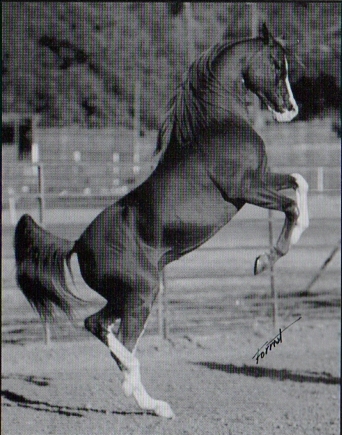
Aulrab is by the exquisite Aurab, a son of the H.H. Reese-bred stallion Aulani. Aurab traces to the mare Rodania via the Kellogg's famous Rabiyat in the tail female line. Aulrab is nineteen years old and, in the tradition of many of his celebrated Kellogg ancestors, acclaimed for his spectacular trotting action.
The sixteen-year-old Canadian Salute is a grandson of Abu Farwa on both sides of his pedigree. His sire was Ab Salute, the last son of Abu Farwa; his dam was Allegra, an Abu Farwa daughter.
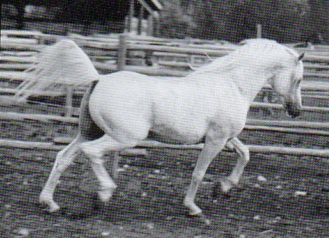
Farlane's Pride is by Farlane (Abu Farwa x Alleyna). His dam, Mahalann, is by Taj Mahal, a son of Ferseyn. He is 22 years old and his grey color and type recall the *Raseyn/Ferseyn influence of this breeding group.
The 24 year old Kilauea Fire represents the end of an era. According to Dr. Ward he is the youngest breeding son of Ga'Zi 5162 (Abu Farwa x Ghazna). Kilauea Fire's tail female line is to Rodania, via the Kellogg mare Rabiyat.
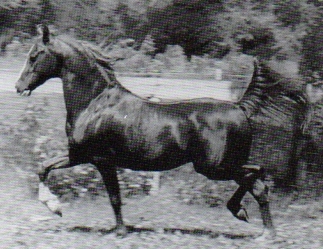
At age fifteen, GA Topaz is the youngest of the mature stallions. His sire Galan was a Park Champion and U.S. and Canadian Top Ten Halter Stallion. Topaz's dam is Aurtama by Aurab, who also sired Aulrab. GA Topaz has ten lines to the Crabbet imported Kellogg stallion *Nasik and, not surprisingly, also has a high stepping natural trot.
FV Kelloggs Legacy (pending), a 1997 colt (Ibn Farlane x Nalana), also will be at Cal Poly. Bruce Clark (an advisor for the new Kellogg heritage breeding program) calls Legacy "a great colt with a lot of quality." He is 'typical' of the Kellogg horses and, according to Clark, looks a lot like Kellogg's trick horse, Pep.
The mares being leased by Cal Poly are: BRR Bint Farlane 406549, BRR Absolutebeauty 374180, FV Farliti Aurora 422412, FV Extra Fancy CAHR 33061, Farlane's Rose 314730, Farletta 414851, and Ohadi Abbie 217767.
Although these horses are not of pure Kellogg bloodlines, their Kellogg influence is pronounced. Among their ancestors are: Abu Farwa, Alyf, Antez, Ardith, *Bahreyn, Bazikh, El Kumait, Farana, *Farasin, Fasal, Fath, *Ferda, Ferdana, *Ferdin, Ferseyn, Follyat, Ghazadina, Ghazayat, Ghazeyna, Hanad, Havanna, *Incoronata, Jadaan, Letan, Mabruk, Moliah, Mutrabba, Nafara, *Nakkla, *Nasik, Nataf, Nusara, Raad, Rabiyas, Rabiyat, *Rahal, *Raida, *Rasafa, *Raseyn, *Rasima, Rayik, Rayza, Rifnas, *Rissletta, Ronek, *Rossana, Rossdin, Saba, Schilan, Schilla, Sedjur, Sikin, Tawali, Treyf, Zayata, and *Zewa.
Melissa Paul, who works at Cal Poly's Arabian Horse Library, says "I am really thrilled to see old blood coming back. When I came out to the corrals behind the barn, it was just like going back to Kellogg's in the old days, with all those chestnuts." Except for one bay and two grays, the leased horses are all chestnuts, like many of their legendary Kellogg ancestors.
The horses at Michigan State have been leased for three years; those at Cal Poly for five, with the exception of Aulrab. "He is too valuable to be missing from my breeding program and Sandy Warren's for five years," explains Dr. Ward. "They are very lucky to get him for two years." Cal Poly hopes to create "another nucleus of Kellogg broodmares" and perhaps a stallion or two before the horses return to Dr. Ward's breeding program "so that he can continue his lifetime dream."
The stallions will be featured in the traditional Sunday shows begun by W. K. Kellogg. Dr. Kobluk says that the horses leased by Cal Poly have "strong, good legs and a lot of bone. The stallions have a lot of natural trot, not gimmicked, which can contribute to the industry as a whole." Dr. Shelle believes that descendants of the Kellogg horses "are great athletes and pretty enough to halter."
Most of these athletic stallions had brief but highly successful show careers. Canadian Salute was Region 17 Champion Trail Horse and Top Five Working Cow Horse. The only year he was shown, Aulrab qualified for the U.S. Nationals in English Pleasure, Park Horse, Native Costume, Ladies Side Saddle, and Pleasure Driving. Farlane's Pride is a Supreme Legion of Honor winner who won 27 English classes in one season and was practically unbeatable in English Pleasure, Sidesaddle, and Native Costume. In Canada, he was Top Ten Native Costume twice and captured four Region 17 performance championships.
"These are great horses," says Dr. Ward. "We have to overlook our own feelings and let the horses go, hoping that they will be used wisely in these breeding programs. It's a justification for everybody's years of labor that these horses will get some recognition. It's all for a common goal. It's gratifying to know that they will not be just lost in history, without contributing the way they should."
"Although these horses came from just three breeders, their pedigrees represent every breeder of CMK pedigrees in North America. Most of the people who are breeding these bloodlines have some of the same horses found in their pedigrees. These horses came from everybody's bloodlines. I hope people recognize that fact and will benefit from it."
Bruce Clark, who initiated the lease, says that the deal involved "no political consideration, no big money, no strategy. Nobody owes anybody." It was just the right thing to do. Insuring that the Kellogg bloodlines continue to be preserved in their ancestral home is "the responsibility of us all." In the future, Clark hopes it will be possible to introduce superior horses of other Kellogg bloodlines to Cal Poly's heritage breeding program.
Dr. Kobluk says that Cal Poly plans to heavily line breed the Kellogg blood, but not to inbreed it.
Cal Poly's mission is challenging; to reestablish a breeding program of original Kellogg bloodlines that will go on in perpetuity. "Our ideal will be to always have a group of heavily Kellogg-bred horses," explains Dr. Kobluk. "Our goals are first, to breed a nice horse and secondly, to breed a nice horse of Kellogg heritage bloodlines. These horses will be seed stock for the rest of the industry, as well. This group of horses is pretty exceptional. Now we really have some quality stock to go on with."
Dr. Kobluk believes that the Kellogg Arabians were an important part of the history and heritage of the Kellogg Ranch. He compares the restoration of Cal Poly's Kellogg breeding program to that of the W. K. Kellogg mansion, which is now being renovated. Like the mansion, the Kellogg horses are "pieces of history that should be preserved."
**All of the articles included in the re-launched Crabbet.com site from the original website, Georgia Cheer, Silver Monarch Publishing and The Crabbet Influence magazine are shared here with permission of Georgia Cheer given May 16, 2012.**
Last Updated: March 24th, 2019

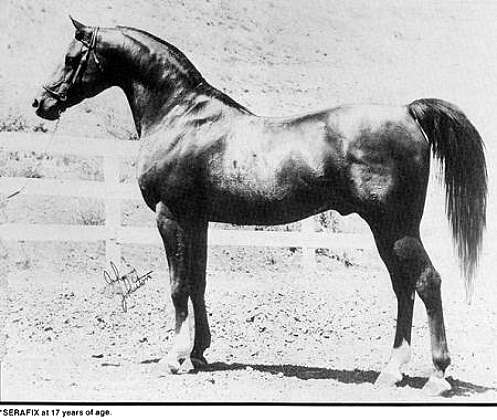
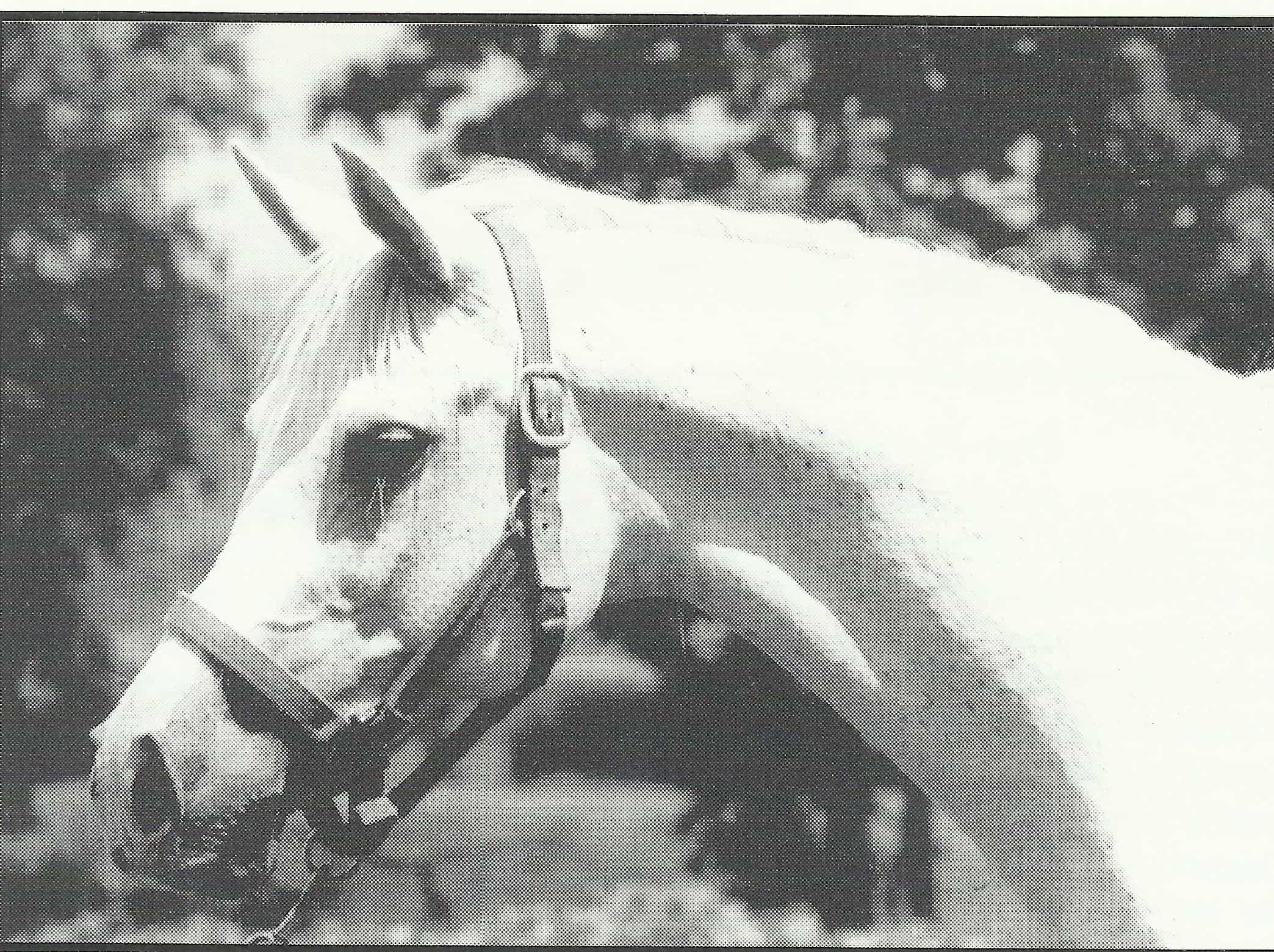
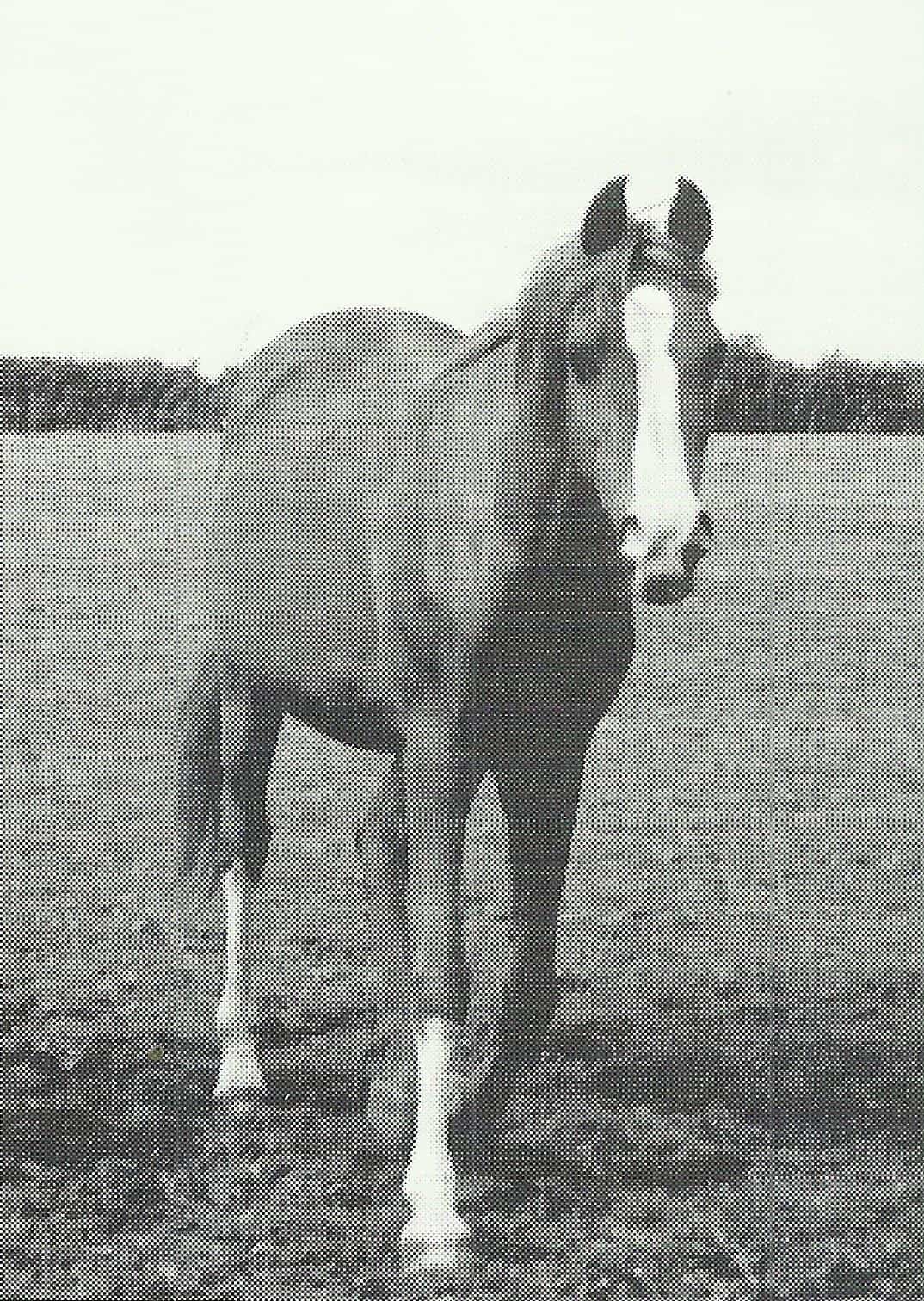
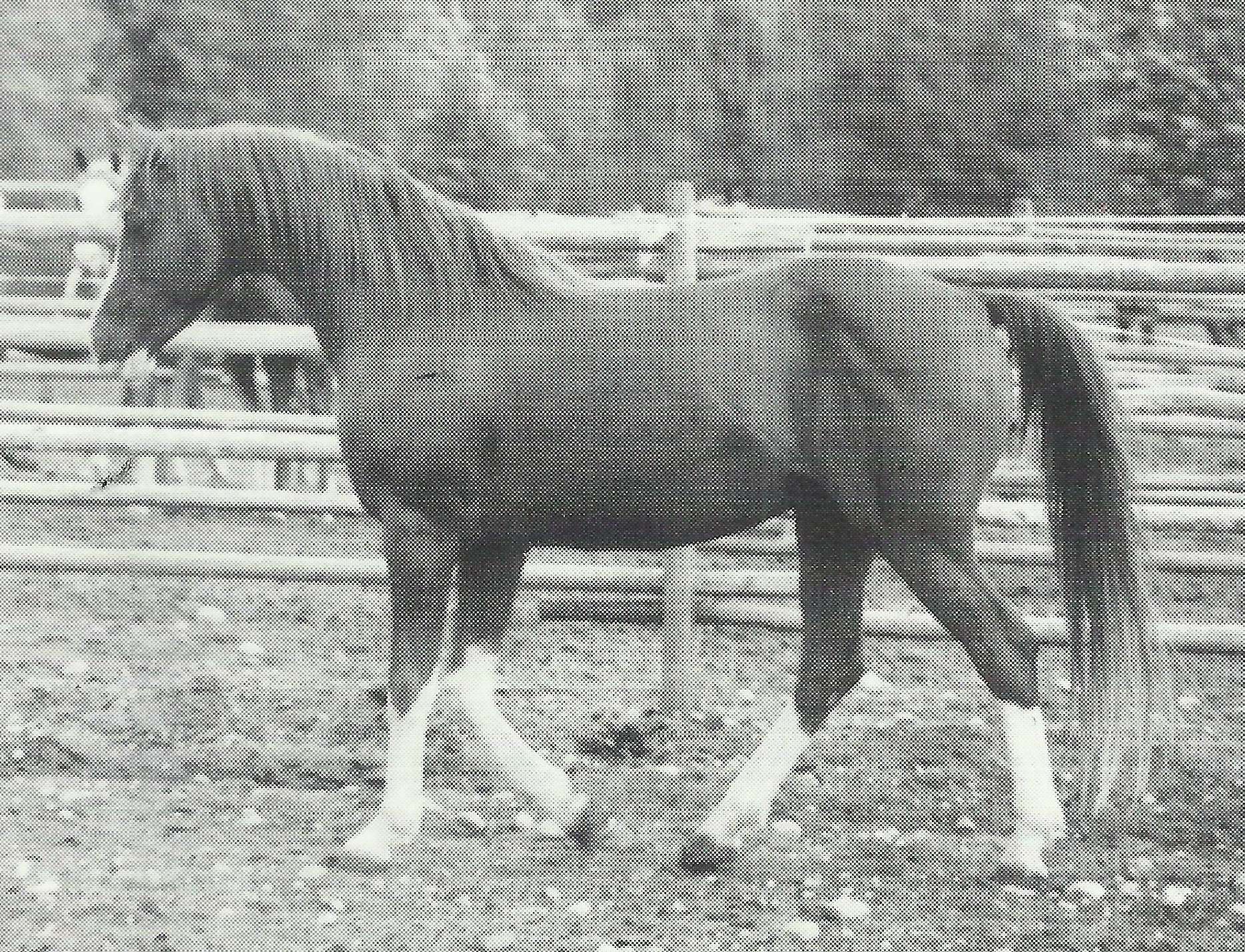
Comments
No Comments